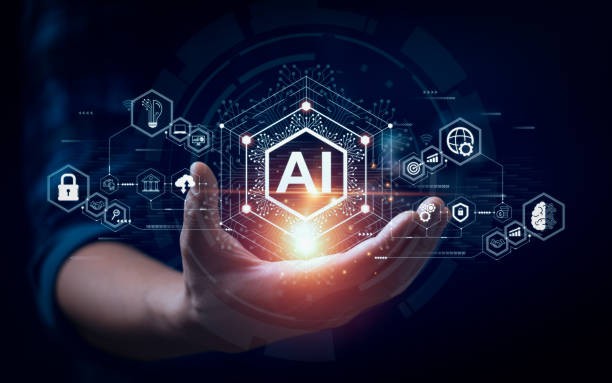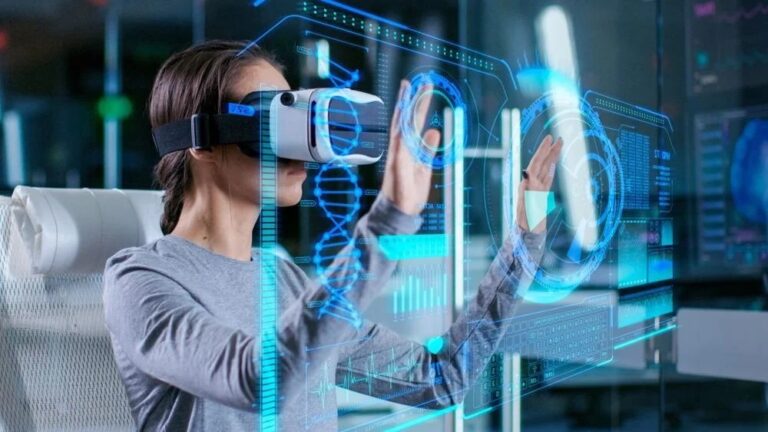The scope of deep learning continues to broaden, impacting various industries in profound ways. Below, we explore even more areas where deep learning is driving innovation and creating new possibilities.
Deep Learning in Environmental Protection
- Wildlife Conservation:
- Species Monitoring: Deep learning models analyze camera trap images and audio recordings to monitor wildlife populations, track movements, and identify species, aiding in conservation efforts and habitat protection.
- Poaching Detection: AI detects signs of poaching and illegal activities by analyzing sensor data, satellite imagery, and patrol reports, helping to prevent wildlife crimes and protect endangered species.
- Climate Change Mitigation:
- Carbon Emission Tracking: Deep learning models analyze satellite data and emissions reports to monitor carbon dioxide levels and assess the effectiveness of emission reduction strategies.
- Climate Modeling: AI enhances climate models by analyzing historical data, current trends, and environmental factors, improving predictions of climate change impacts and informing policy decisions.
Deep Learning in Financial Services
- Fraud Detection:
- Transaction Analysis: Deep learning models analyze transaction data to detect unusual patterns and potential fraud, reducing financial losses and enhancing security.
- Risk Assessment: AI assesses credit risk by analyzing financial histories, transaction behaviors, and external data, providing more accurate risk evaluations and improving lending decisions.
- Algorithmic Trading:
- Market Predictions: Deep learning models analyze market data, news, and social media sentiment to predict stock price movements and inform trading strategies, optimizing investment returns.
- Portfolio Management: AI assists in managing investment portfolios by analyzing market trends, risk factors, and performance metrics, providing personalized investment recommendations.
Deep Learning in Education
- Personalized Learning:
- Adaptive Learning Systems: Deep learning models analyze student performance and learning styles to provide personalized educational content, pacing, and feedback, enhancing learning outcomes and engagement.
- Intelligent Tutoring: AI-powered tutoring systems offer personalized support and guidance by analyzing student interactions, identifying areas for improvement, and adapting instruction to individual needs.
- Content Creation:
- Automated Essay Scoring: Deep learning models evaluate and score essays based on content, structure, and grammar, providing consistent and objective assessments in educational settings.
- Interactive Learning Tools: AI enhances educational tools and platforms by providing interactive and engaging content, such as simulations, quizzes, and games, to support active learning and skill development.
Deep Learning in Telecommunications
- Network Optimization:
- Traffic Management: Deep learning models optimize network traffic by analyzing usage patterns, detecting congestion, and adjusting resources to ensure efficient data transmission and minimize latency.
- Fault Detection: AI monitors network performance and detects faults or anomalies by analyzing sensor data and network logs, enabling proactive maintenance and reducing downtime.
- Customer Experience:
- Predictive Maintenance: Deep learning models predict and address potential service disruptions by analyzing network data and usage patterns, improving reliability and customer satisfaction.
- Service Personalization: AI personalizes telecom services by analyzing customer preferences, usage habits, and feedback, offering tailored plans, recommendations, and promotions.
Deep Learning in Aerospace
- Space Exploration:
- Mission Planning: Deep learning models assist in planning space missions by analyzing mission parameters, spacecraft data, and environmental factors, optimizing trajectories and resource allocation.
- Image Analysis: AI analyzes satellite and space telescope images to detect celestial objects, monitor space weather, and study planetary surfaces, advancing our understanding of the universe.
- Aircraft Maintenance:
- Predictive Maintenance: Deep learning models analyze aircraft sensor data to predict maintenance needs, detect potential failures, and optimize maintenance schedules, improving safety and operational efficiency.
- Flight Performance Monitoring: AI monitors flight performance by analyzing real-time data, identifying issues, and providing insights to enhance fuel efficiency and flight safety.
Deep Learning in Entertainment and Media
- Content Generation:
- Script Writing: Deep learning models assist in generating creative content, such as movie scripts and TV show plotlines, by analyzing existing works and identifying successful narrative structures.
- Music Composition: AI generates music by analyzing patterns in existing compositions, creating original pieces in various genres, and assisting composers in exploring new creative directions.
- Audience Analytics:
- Engagement Insights: Deep learning models analyze viewer data, social media interactions, and content preferences to provide insights into audience behavior, helping media companies tailor their content and marketing strategies.
- Recommendation Systems: AI enhances content recommendation systems by analyzing user viewing habits, preferences, and feedback, delivering personalized recommendations and improving user satisfaction.
Deep Learning in Transportation
- Autonomous Drones:
- Navigation and Control: Deep learning models enable autonomous drones to navigate complex environments, avoid obstacles, and complete tasks such as delivery and surveillance, enhancing operational efficiency and safety.
- Surveillance and Monitoring: AI-powered drones analyze aerial imagery and sensor data to monitor large areas, track changes, and provide real-time updates for applications such as disaster response and infrastructure inspection.
- Smart Transportation Systems:
- Public Transit Optimization: Deep learning models optimize public transit schedules, routes, and capacity by analyzing passenger data, traffic patterns, and environmental conditions, improving service efficiency and convenience.
- Ride-Sharing Services: AI enhances ride-sharing services by optimizing vehicle routing, predicting demand, and managing driver assignments, providing a more efficient and reliable transportation experience.
Deep Learning in Consumer Electronics
- Smart Home Devices:
- Voice Assistants: Deep learning models power voice assistants by enabling natural language understanding, context recognition, and personalized responses, enhancing user interactions with smart home devices.
- Home Automation: AI optimizes home automation systems by analyzing user preferences, behavior patterns, and environmental data, providing personalized control over lighting, temperature, and security.
- Wearable Technology:
- Health Monitoring: Deep learning models analyze data from wearable devices to monitor health metrics such as heart rate, activity levels, and sleep patterns, providing actionable insights for users and healthcare providers.
- Fitness Tracking: AI enhances fitness tracking by analyzing exercise data, providing personalized workout recommendations, and adapting training programs to individual goals and progress.
Conclusion
Deep learning’s expanding impact across diverse industries underscores its transformative potential. From environmental protection and financial services to education and consumer electronics, deep learning is driving innovation and creating new opportunities. As we continue to explore and develop this technology, it’s essential to balance its advancements with ethical considerations, transparency, and inclusivity. Embracing deep learning responsibly will ensure its benefits are harnessed to address complex challenges and enhance our quality of life, paving the way for a future where technology enriches and empowers all aspects of society.





+ There are no comments
Add yours